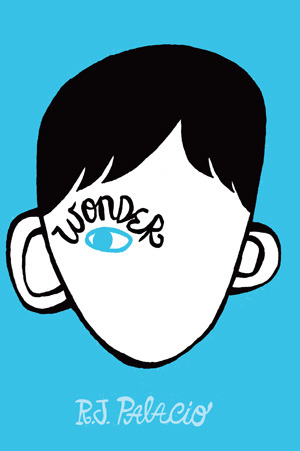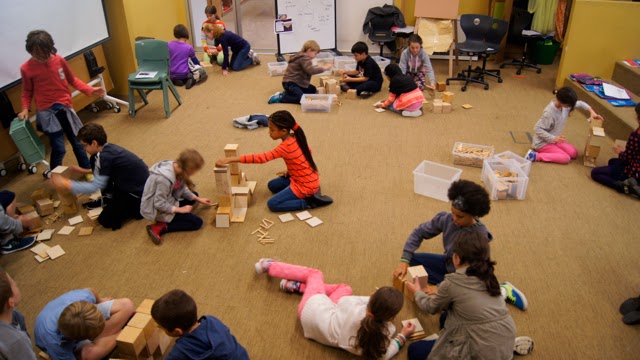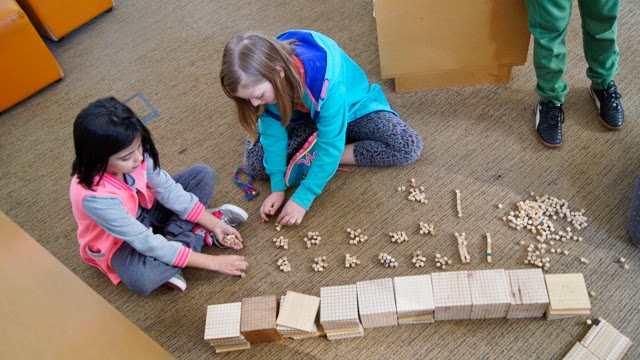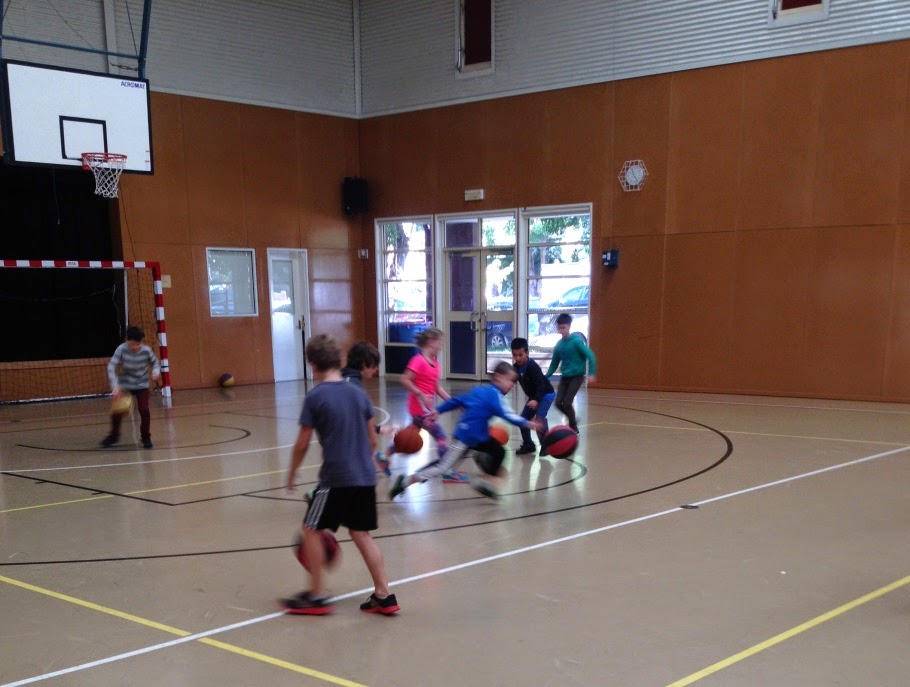Decimal Fractions
The two materials we focused on during our investigation on decimal fractions during week 5 and 6 were decimats and deciwire. These were both very hands on materials that allowed students to really see visually the size of the number made up of tenths and hundredths. These materials were specifically used to correct the misconception that longer the number is after the decimal point, the larger the value of the number (misconception that 0.25 < 0.3 because 25 is larger than 3). This is often called longer-is-larger misconception. Students were instructed to create and order decimal fraction numbers using decimats during week 5. In week 6, we consolidated this idea by creating several decimal numbers with straws and string (see photo).
 |
| Check out our deciwire on our wall! |
 |
| This is a very hands on way of looking at decimal fractions. Here, children discuss the decimal number while creating the deciwire. |
Addition Stories
To begin our investigation into operation, we looked into various word problems in the form of stories. We investigated exactly what the problem was asking us to do, what informations were given, which information was important to the question and which were not and what operation or rule we would use to solve the problem. Children had a lot of fun creating their own addition stories and sharing them with the group to see whether the others could figure them out.
Data Project
As a part of our investigation into the four big ideas of Mathematics, we are beginning our exploration of the concept of 'relationship' through the data project. In this project, students are given the question "What books do children read in our Neighbourhood?" Students plan how they collect and represent the data during the maths investigation sessions. This week we began planning the collection of the data by looking at the three steps; 1. What are we going to find out? 2. What data can we get? and 3. How do we get the data? The students will then look into designing the collection of data and reflect on its efficiency. Finally, they will organize, categorise, analyse and represent the data in a way appropriate to its context.
Home Learning
Decimal fractions - ordering decimal numbers is very important in children's understanding. Here are two games I like playing.
Balloon Game
Flower Power game
Addition Stories - Creating addition stories is always fun at home. We often find a picture and make up stories to challenge each other. Sometimes we insert unnecessary information to try and trick each other. This website has a huge selection of word problems for you and your children to look at together. It's important to always discuss what the question is asking them to do. Sometimes getting the children to draw a diagram of the problem can help.














